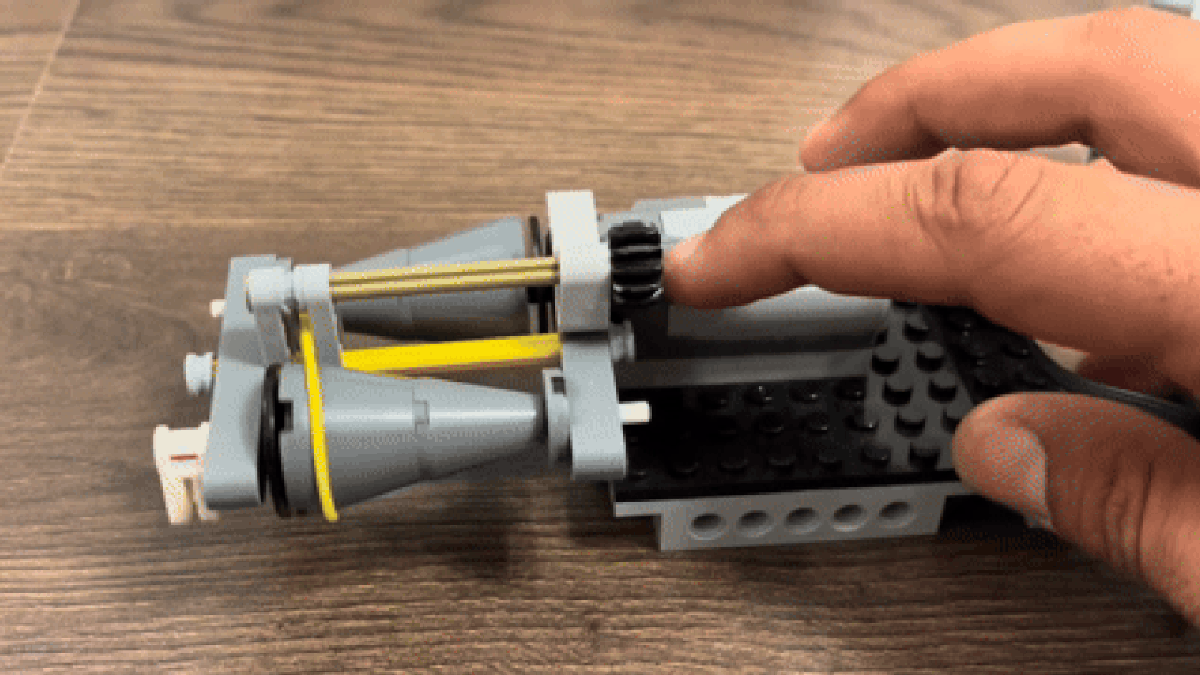Lego bricks are pretty great, they can be used to recreate iconic airports, let you build up your dream car and can now be used to demonstrate what’s going on inside your car’s transmission. That’s thanks to a social media user who has made it their mission to explain complex engineering with fun plastic toys.
Instagram user Bricks Master Builders has built a name for themselves building complex models out of Lego bricks. In the past, this has included recreating engines, pistons and even a working fan to keep themselves cool on hot summer days. Now, they have tackled the humble continuously variable transmission.
The CVT is what many automatic cars use in place of a traditional gearbox that’s filled with cogs and gears. Instead of stepped gears, the CVT uses a pair of cones to provide a theoretically unlimited number of gears. But how does it do that?
Well, Bricks Master Builders is on hand with their box of Lego bricks to show you. For the model, they use two cones made from Lego bricks and connect each to a shaft: one simulating the input from the engine and the other the output that would normally be transferred to the wheels of your car.
The two cones don’t touch, and instead are linked together by a band that loops around each. Using a simple Lego stick, the band is moved across the cones, which alters the speed of the output. When the band is at the thickest part of the input cone and the thinnest part of the output, it spins much, much quicker. Conversely, when it’s on the thinnest part of the input cone and the thickest part of the output, it spins much slower.
It might not be the most complex model made from Legos that we’ve ever seen, but it does a pretty good job at showing you what’s going on under the hood of your beloved Subaru.
If this whet your appetite for more engineering explainers, we’ve got a great deep dive into how Honda built a CVT for its mountain bikes, and another post here looking into the wild tech that goes into building Koenigsegg’s seven-clutch gearbox.







